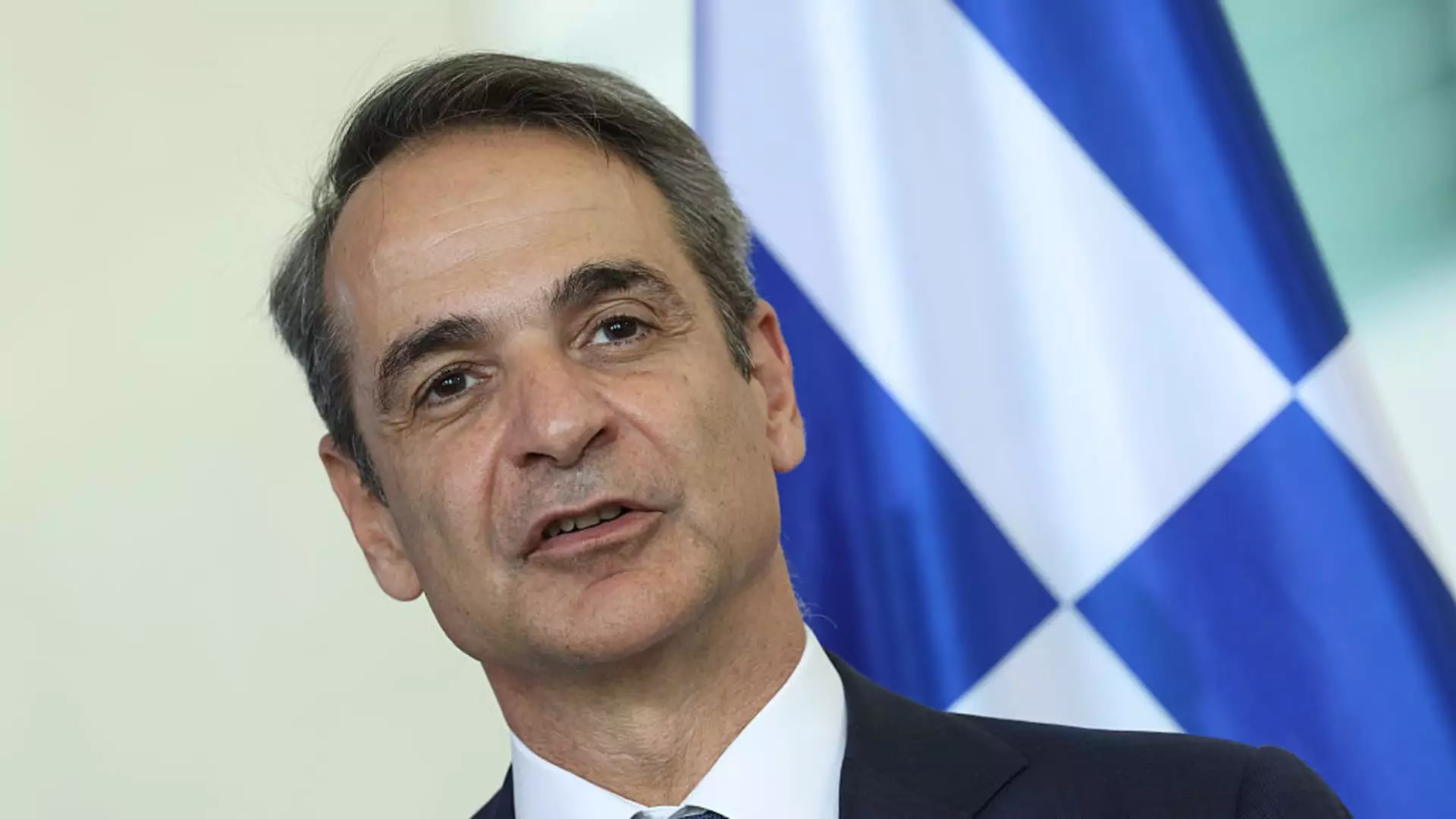The ongoing discourse about NATO defense spending, particularly in the context of demands from U.S. President Donald Trump, unveils stark realities about military budgets that many nations are reluctant to confront. Greek Prime Minister Kyriakos Mitsotakis aptly highlighted the daunting challenge behind Trump’s push for NATO allies to allocate 5% of their GDP on defense—a target that many view as excessively ambitious and possibly detrimental to their economies. The pressure for NATO nations to ramp up their defense budgets has been increasingly palpable, but the disparity between ambition and economic viability cannot be ignored.
Nations like Greece, which are already exceeding the current NATO target of 2%, understand that sustainable military spending requires a delicate balance. Mitsotakis’s suggestion that a ceiling of 3.5% might be more realistic reflects a broader acknowledgment that while the rhetoric around defense spending may be politically charged, the economic ramifications cannot be dismissed. The necessity of meeting security challenges must be weighed against the pressing social needs within these nations.
Parsing Long-term Goals from Political Rhetoric
One cannot overlook that while Trump’s insistence on higher defense spending might be well-intentioned, it often feels more like a political maneuver than a unified strategy for security. Mitsotakis’s acknowledgment that the 5% figure could be “a long-term target” if infrastructure expenditures are included hints at a fraught complexity that often gets lost in the headlines. And therein lies a significant problem: political leaders often conflate fiscal prowess with military might, threatening to prioritize defense spending over essential public services that contribute to national security in as profound, if not more significant, ways.
In countries where military spending is constantly on the rise, policymakers face the risk of neglecting social infrastructure, which is absolutely vital for a holistic approach to national security. Increased military budgets should not come at the expense of education, health care, and technological advancement, which are equally crucial in securing a nation’s future.
Trump’s Military Magnificence vs. European Realities
The camaraderie in defense among NATO nations is, in many respects, painted over by the aspirations of a single leader. While Trump argued for increased contributions as “fair share” requirements, it has largely been perceived as a showdown between U.S. dominance and European self-sufficiency. Countries like Poland, which is openly committing to a 5% defense expenditure, have taken this challenge to heart, perhaps out of the fear of being sidelined in a redefined European security landscape.
This general trend toward escalating military spending must prompt a deeper inquiry into what true security means for nations like Greece and Poland. Should national budgets reflect military expenditures, or should they signify a balance that captures the multifaceted essence of national strength? By merely emphasizing military output, we risk obliterating essential investments in the fabric of societies that ensure their overall resilience.
A Deeper Look into NATO’s Future
The looming NATO summit will undoubtedly serve as a platform for re-evaluating defense spending targets. However, it begs the question of whether these discussions will genuinely reflect the needs of member countries or simply echo the demands of the U.S. When European leaders voice support for the notion of increased military contributions, it often feels more like a political obligation than a sincere recognition of defense necessities.
The missed opportunity lies in redefining what it means to invest in security. Mitsotakis emphasizes that the European Commission is taking steps to ease fiscal restrictions, hinting that a broader understanding of security expenditures—beyond just military spending—could lead to a more equitable and responsive defense strategy. In this light, advocating for an inclusive understanding of national defense that embraces economic stability and social welfare is not merely a progressive ideal; it is, in fact, a necessary recalibration in a world defined by complexity and interdependence.
In a rapidly changing global landscape rife with uncertainties, the question of how nations, particularly under NATO, navigate their security commitments is critical. Whether they lean into militarization or invest in the holistic improvement of their societies will determine their capacity for sustainable strength. The future of NATO may very well hinge on this pressing philosophical and practical debate.



Leave a Reply